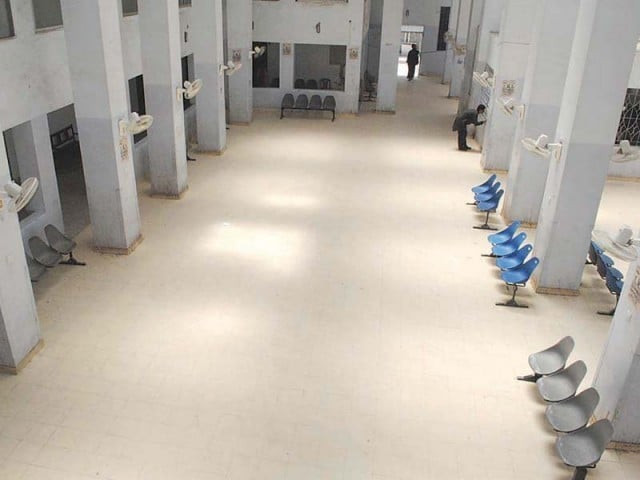Food contamination: On average, BBH receiving 27 gastro patients daily
Hospital received 815 gastroenteritis patients in June

Number of gastroenteritis patients received at the Benazir Bhutto Hospital. PHOTO: NNI
Gastroenteritis is primarily caused by contaminated food and water, and the rising mercury coupled with electricity shortage has made it difficult to keep food items fresh.
As per the data provided by BBH Additional Medical Superintendent Dr Asif Chohan, the hospital received 81 gastroenteritis patients from 22 till 30 April, making up an average of nine patients per day.
During the months of May and June, the emergency and OPD units received twice as many patients as they did in April. In May, a total of 644 patients were received by the hospital, out of which 350 were admitted in the emergency ward.
Similarly, in the month of June, the hospital received 815 patients out of which 313 patients were admitted in the emergency ward till the end of the month. This indicates an average of 27 gastroenteritis patients per day.
“Basically these complications occur when people consume food that is not properly stored,” Chohan said.
He said during the summer food spoils very easily therefore only fresh food items should be consumed.
“Milk products especially should not be stored for longer periods of time and only fresh items should be used,” he suggested.
Moreover, he said fruits should be consumed as whole rather than being cut into small pieces, which was not good for the health in this weather.
“As for Ramazan, overeating low-quality, spicy and oily food is the main factor for developing gastroenteritis-related complications,” he said.
On the contrary, as per data provided to The Express Tribune, the hospital had not experienced any increase in diabetic emergency cases.
Chohan said the hospital normally received 146 diabetic patients per day on average but the overall influx of its patients remained low in Ramazan.
“Generally serious diabetic patients are not advised to fast but individuals with mild to moderate levels of diabetes are advised to adjust their insulin intake,” he said.
Chohan said diabetic patients should visit their general physician to pre-determine the amount of insulin they would be taking before fasting.
Dispelling misinformation on insulin checkup through prick tests, Chohan said diabetic patients should regularly conduct tests as it only requires a drop of blood to calculate sugar level and does not amount to breaking one’s fast.
Published in The Express Tribune, July 2nd, 2015.



















COMMENTS
Comments are moderated and generally will be posted if they are on-topic and not abusive.
For more information, please see our Comments FAQ